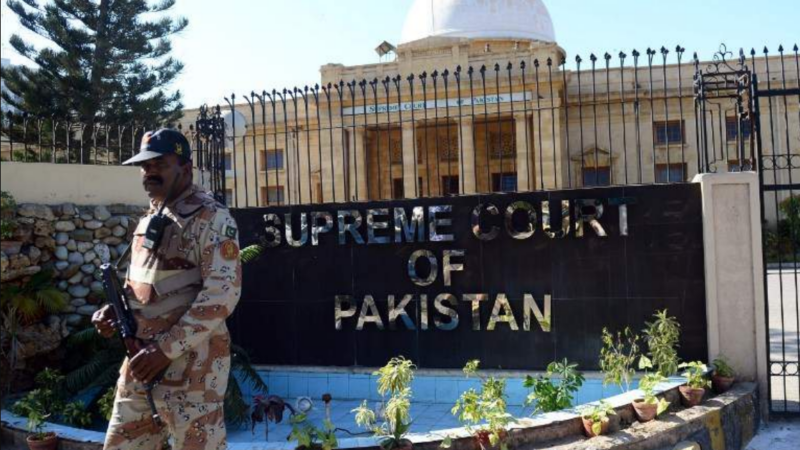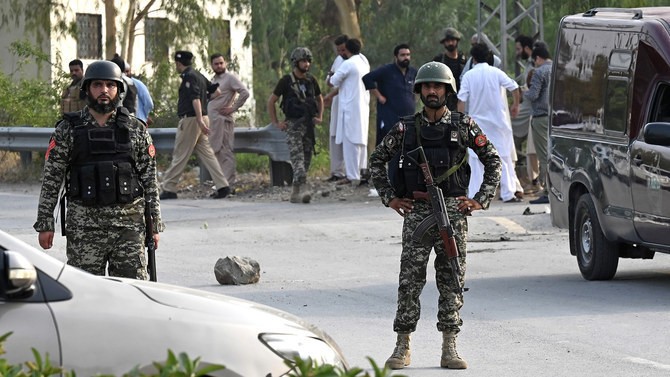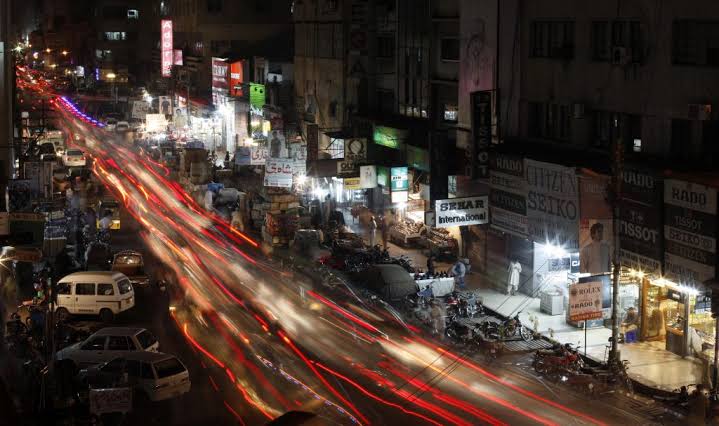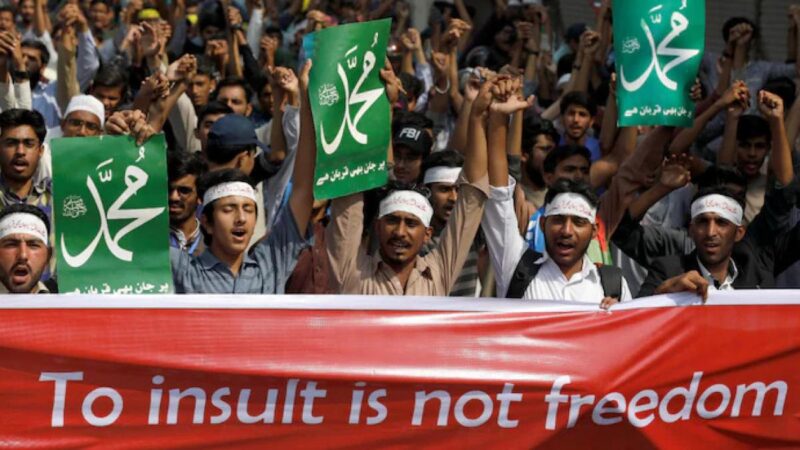Lal Masjid Erupts Again In Pakistan
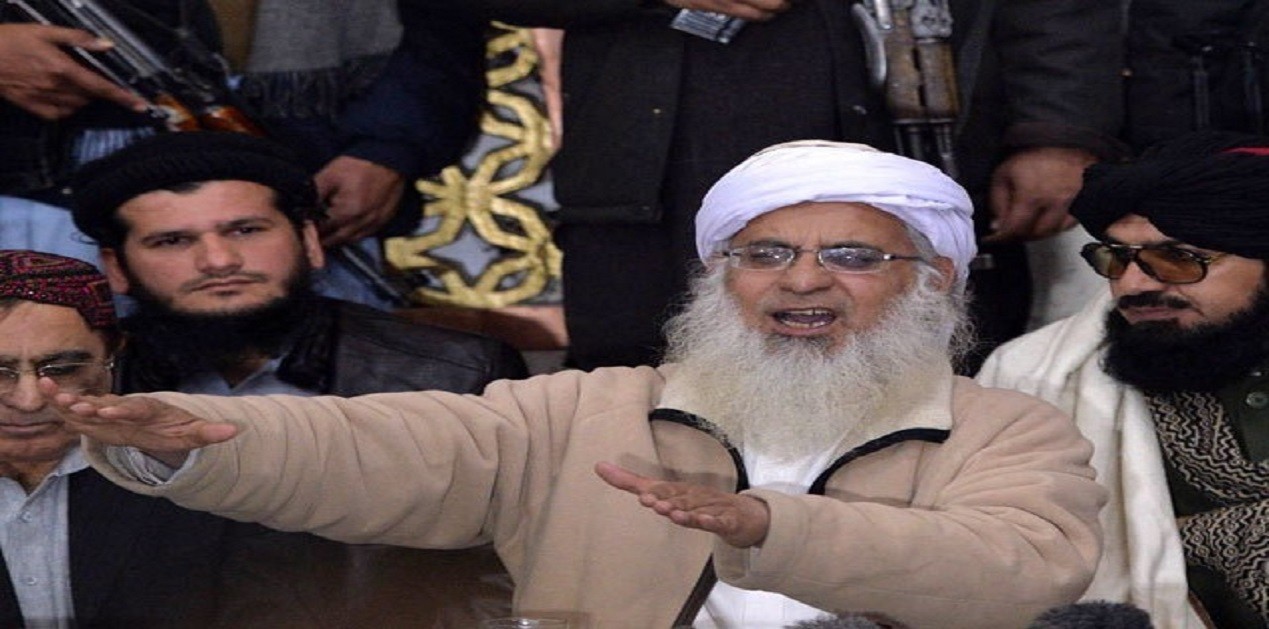
A mosque with a girls’ seminary located in the heart of the national capital continues to dog Pakistan’s rulers and their military mentors for the last 15 years and also reminds of the birth of Tehreek-e-Taliban Pakistan (TTP), the most powerful faith-based movement.
Last Wednesday (June 21, 2023) it took a violent turn, yet again, for the fourth time since January, when its repeatedly-removed ‘khatib’ the prayer leader, Maulana Abdul Aziz, thwarted his arrest by dramatically snatching an AK-47 from the policemen, firing at them and escaping unharmed back to the mosque.
He told the media via a video, confessing that “I was injured but with the help of divine strength, I got hold of the gun of one of the personnel and started firing. In the meantime, a large number of people gathered, which gave me an opportunity to escape.”
His wife, Umme Hasaan, confirmed that the Maulana fired several rounds at the police team and there was crossfire. She even sought help from the proscribed Tehreek-i-Taliban Pakistan (TTP), “asking them not to stay quiet”, media reports said.
Through the fracas with authority, scores of girl students from the seminary that his wife runs came out with sticks, beat up policewomen and media and blocked several major thoroughfares.
The drama with varying intensity has continued since 2007. July 10, 2023, will mark the completion of 15 years since then military dictator, General Pervez Musharraf ordered the siege of the complex by the army’s commandos. Although he succeeded in securing the complex where 100 persons, mostly girls, died, it sowed the seeds of the TTP that has over the years killed 80,000 people.
Maulana Aziz and four accomplices have been booked under terrorism laws. But that is as far as what successive governments in Pakistan have gone. Intermittent talks have only made Aziz and his supporters more defiant. Their demands include compensation for the 2007 damages, more land on the adjacent plot and funds to build another seminary.
Dawn newspaper (June 22, 2023) raised queries about Aziz’s “re-emergence as a prayer leader in Lal Masjid — despite the fact that he had retired and was replaced — and attempts to take control over the adjoining plot of the former children’s library.”
The latest round comes amidst political economic crises, when various faith-based groups, among them the Tehreek-e-Labbaik Pakistan (TLP) have also begun to take to the streets. The TLP is currently marching thousands of its activists towards Islamabad.
During the siege in July 2007, the head of the complex, Maulana Abdul Rashid was killed, while Aziz, his brother, was caught trying to escape donning a burqa. Reports of that time said over 1,100 of their supporters were killed.
From 2007-2017, 35 cases have been registered against Aziz but he was then acquitted in all those cases in 2017 as part of an unpublicized deal.
Despite being dismissed from his position as a prayer leader in 2004, he has repeatedly occupied the Lal Masjid several times, including in March 2019, February 2020 and September 2022.
The most publicised case against Aziz was brought by civil society activists in December 2014 who claimed they received death threats from the cleric after protesting his refusal to condemn the massacre at Army Public School-Peshawar.
The TTP owes its birth to the Lal Masjid siege. It was formed as an umbrella organisation to oppose the Pakistani state for attacking a mosque. It had the vocal support of Al Qaida leader Osama bin Laden, then hiding in Abbottabad in Pakistan and his future successor, Ayman Al-Zawahiri.
On July 23, 2017, marking ten years of the Musharraf-ordered operations, analyst Zahid Husain linked Aziz and his outfits to the Islamic State (IS).
He wrote: “The revival of the Lal Masjid as the citadel of extremism exposes the lack of will to effectively deal with the menace of militancy.”
“The impunity enjoyed by Abdul Aziz and other radical clerics raises fears of the capital returning to a 2007-like situation.
“The threat is much more serious with the mushroom growth of madrassah populations in the city.
“It seems that the state has not learnt any lesson from the events that led to the bloody siege that shook the country.” The position remains the same as the event approaches 15 years next month.

